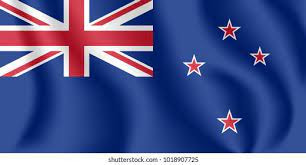Introduction
The gambling industry in New Zealand has witnessed significant growth over the years. With a wide range of gambling activities available, including casinos, lotteries, sports betting, and online gambling platforms, it is essential to understand the regulatory landscape surrounding these activities.
This article provides a comprehensive overview of the current gambling regulations in New Zealand, highlighting key laws, responsible gambling initiatives, and the impact of regulatory changes on the industry.
Gambling Laws in New Zealand
New Zealand has specific laws in place to regulate the gambling industry. The primary legislation governing gambling activities is the Gambling Act 2003. Under this act, the Department of Internal Affairs (DIA) is responsible for overseeing and enforcing gambling regulations.
Key Provisions of the Gambling Act 2003
- Licensing Requirements: Defines licensing processes for various forms of gambling.
- Classification: Categorizes gambling into class 1, 2, 3, and 4, each with distinct regulations.
- Regulatory Oversight: Assigns regulatory responsibilities to the DIA and the Gambling Commission.
Land-Based Gambling in New Zealand
Types of Land-Based Gambling
- Casinos: Operate under strict licensing and compliance standards.
- Gaming Venues: Include pubs and clubs offering pokies and other games.
Regulations for Land-Based Gambling
- The Gambling Act sets the criteria for obtaining a casino license and mandates responsible gambling practices.
- The DIA monitors compliance, ensuring that casinos adhere to responsible gambling policies.
Responsible Gambling Practices
- Self-Exclusion Programs: Allow players to voluntarily ban themselves from gambling venues.
- Host Responsibility Training: Mandatory for casino employees to help identify and assist problem gamblers.
Online Gambling in New Zealand
Legal Status of Online Gambling
- Permitted: New Zealanders can legally gamble on offshore online platforms.
- Prohibited: It is illegal for operators based in New Zealand to offer online gambling services to residents.
Regulatory Oversight
- The DIA monitors online gambling activities, ensuring that offshore platforms comply with New Zealand’s standards for safety and fairness.
Challenges in Regulating Online Gambling
- Cross-Border Issues: Difficulty in enforcing regulations on offshore operators.
- Payment Restrictions: Measures to restrict payments to unauthorized gambling sites.
Responsible Gambling Initiatives in New Zealand
Promoting responsible gambling is a cornerstone of New Zealand’s gambling regulation framework. The DIA, in collaboration with gambling operators, has implemented several initiatives to protect players.
Key Responsible Gambling Measures
- Self-Exclusion Programs: Enable players to restrict their own gambling activities.
- Gambling Helplines: Offer support and counseling for problem gamblers.
- Spending Limits: Encourage operators to provide tools for setting deposit and spending limits.
Role of the Gambling Commission
- An independent statutory body that oversees the regulatory process.
- Ensures that operators comply with responsible gambling practices.
- Reviews and updates policies based on emerging trends and risks.
Compliance Requirements for Gambling Operators
Licensing Process
- Application Requirements: Operators must provide detailed information about ownership, funding, and operational practices.
- Background Checks: Mandatory for all directors and significant shareholders.
Compliance Obligations
- Anti-Money Laundering (AML): Adherence to AML and counter-terrorism financing regulations.
- Fair Play: Ensuring that games are tested and certified for fairness.
- Advertising Restrictions: Prohibitions on misleading advertisements targeting vulnerable individuals.
Frequently Asked Questions (FAQs)
Q1: Is gambling legal in New Zealand?
A1: Yes, gambling is legal in New Zealand. The Gambling Act 2003 regulates the industry, defining various forms of gambling and establishing licensing requirements.
Q2: Can New Zealanders gamble on offshore online platforms?
A2: Yes, New Zealanders can participate in online gambling activities offered by overseas operators. However, it is illegal for operators based in New Zealand to offer online gambling services to residents.
Q3: What is responsible gambling, and why is it important?
A3: Responsible gambling refers to measures aimed at minimizing the harm caused by gambling activities and promoting safe practices. It is essential to protect vulnerable individuals, prevent problem gambling, and maintain the integrity of the industry.
Q4: How does the New Zealand government ensure the fairness and integrity of gambling activities?
A4: The Department of Internal Affairs (DIA) and the Gambling Commission work together to regulate and oversee gambling activities in New Zealand. They enforce laws, license operators, and implement measures to ensure fair and transparent gambling practices.
Conclusion
New Zealand’s gambling regulation framework aims to strike a balance between allowing gambling activities and protecting the public interest. The Gambling Act 2003, enforced by the Department of Internal Affairs and the Gambling Commission, provides clear guidelines for both land-based and online gambling operators while emphasizing responsible gambling initiatives.
By understanding these regulations, individuals can engage in gambling activities safely and responsibly, contributing to a well-regulated industry that benefits both the players and the nation as a whole.

